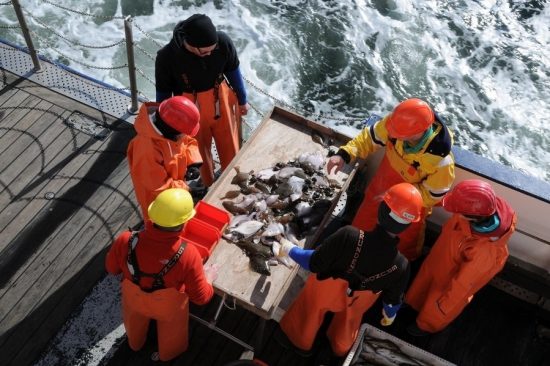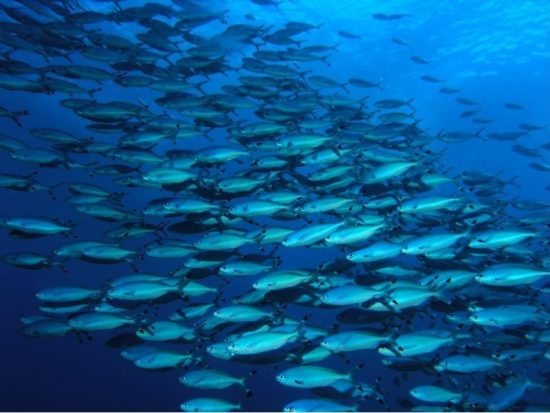



Many
European fish stocks are overfished or are under threat of being overfished. A
recent study reveals that more than ten fish stocks in the northeastern
Atlantic are being exploited beyond sustainable levels.
Undertaken
by scientists from the Cluster of Excellence ‘The Future Ocean’, the GEOMAR
Helmholtz Centre for Ocean Research Kiel and the University of Kiel (CAU),
together with international colleagues, the study examines the reliability of
the MSC (Marine Stewardship Council) certification for northeastern Atlantic
fish stocks. The results of the study is published in the current issue of the Marine
Policy journal.
The
researchers examined 31 northern European fish stocks in the northeastern
Atlantic that have been certified under the MSC guidelines as being sustainable
and well managed. Dr Rainer Froese from GEOMAR said that the official stock
assessments and the basis for MSC certification were taken into account.
Eleven of
the stocks were found to be exploited beyond their maximum sustainable levels.
In addition, four of these stocks, due to their small quantities, were fished
beyond safe biological limits. Nevertheless, they received the certification as
the MSC had expected the stocks to improve once they were in the programme.
However, this was not the case. Even after an average of four years
(specifically one to ten years) of MSC certification, there was no significant
improvement in the fishing pressures or size of the fish stocks of these
companies.
Based on
the data from the last certified year, seven stocks were overfished (comprising
44 percent of the stocks with available data) while five were outside of safe
biological limits.
“Our study
shows that certification does not effectively limit fishing practices. The
permitted catches of three of the stocks were exceeded by up to 50 percent,”
said Professor Martin Quaas from the Institute of Economics at the Christian
Albrechts University. Although MSC certification can lead to sustainable
fishing practices if properly adhered to, the researchers concluded that
without any effective control of the industry, it is difficult to live up to
the claims of being a model fishery.
Presently,
the MSC is unable to legally enforce the rules at the European and
international levels; the certification is voluntary. “Any company can use the
term ‘sustainable fishing’ freely. There are no controlled standards for
environmental labelling in this area,” said Professor Nele Matz-Lück from
Walther-Schücking Institute for International Law at CAU. She added that
although ecolabels for overfished stocks might be legal, they were not
justifiable.
The
researchers recommended that companies that overfish or have unsafe stock sizes
be immediately suspended from the certification. “Fish products with the MSC
label are preferred by consumers, so for the certification to continue to enjoy
the confidence of consumers, the MSC needs to improve on its credibility,” said
lead author Dr Silvia Opitz from GEOMAR.
The MSC is
an international, independent and nonprofit organisation that certifies that a
company’s fish and seafood products comes
from sustainable fisheries. Its blue seal on the packaging of seafood products
is used by consumers to make environmental-friendly buying decisions.
Source:
www.geomar.de
 Mares
Mares 31st May 2016
31st May 2016